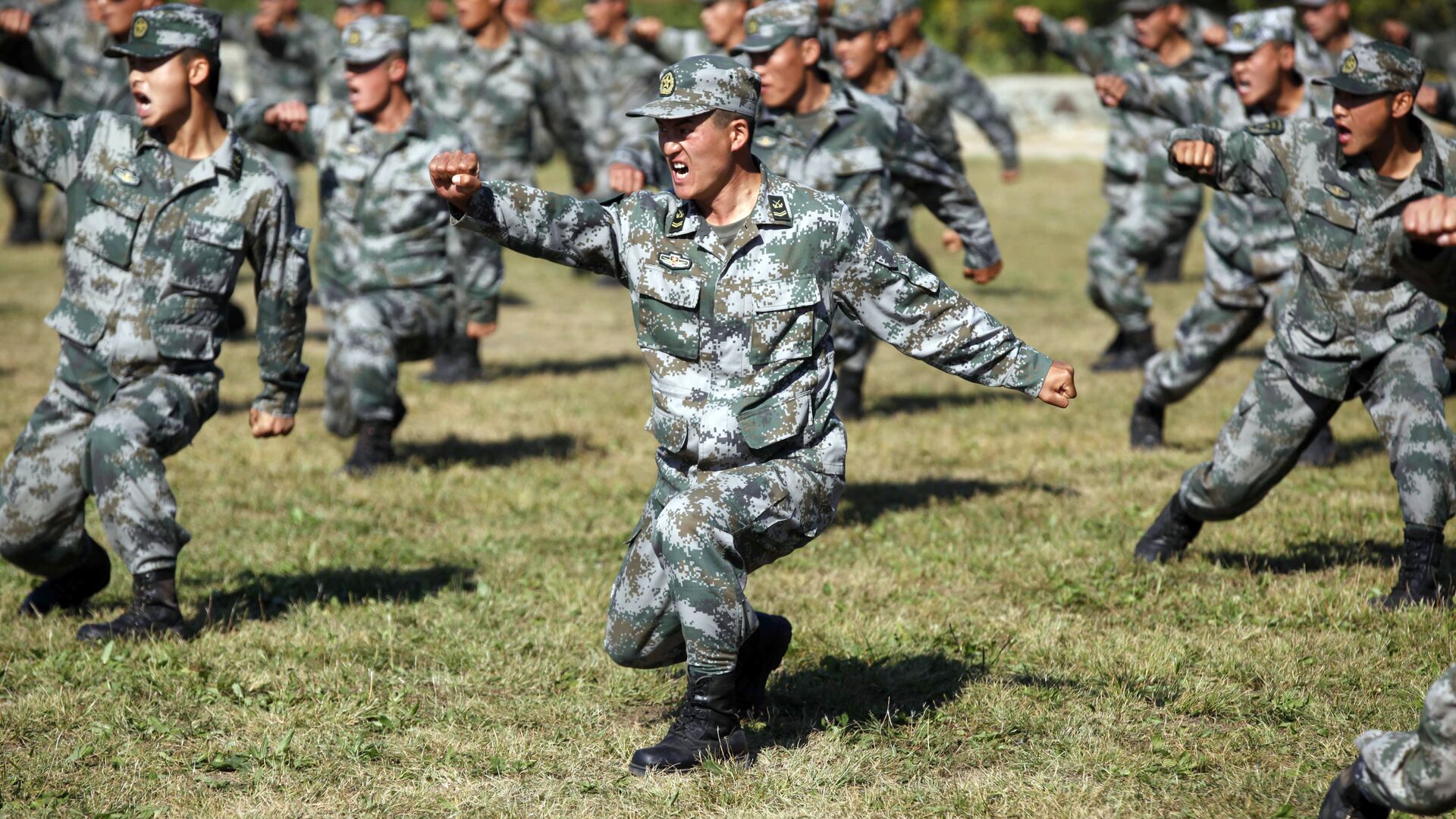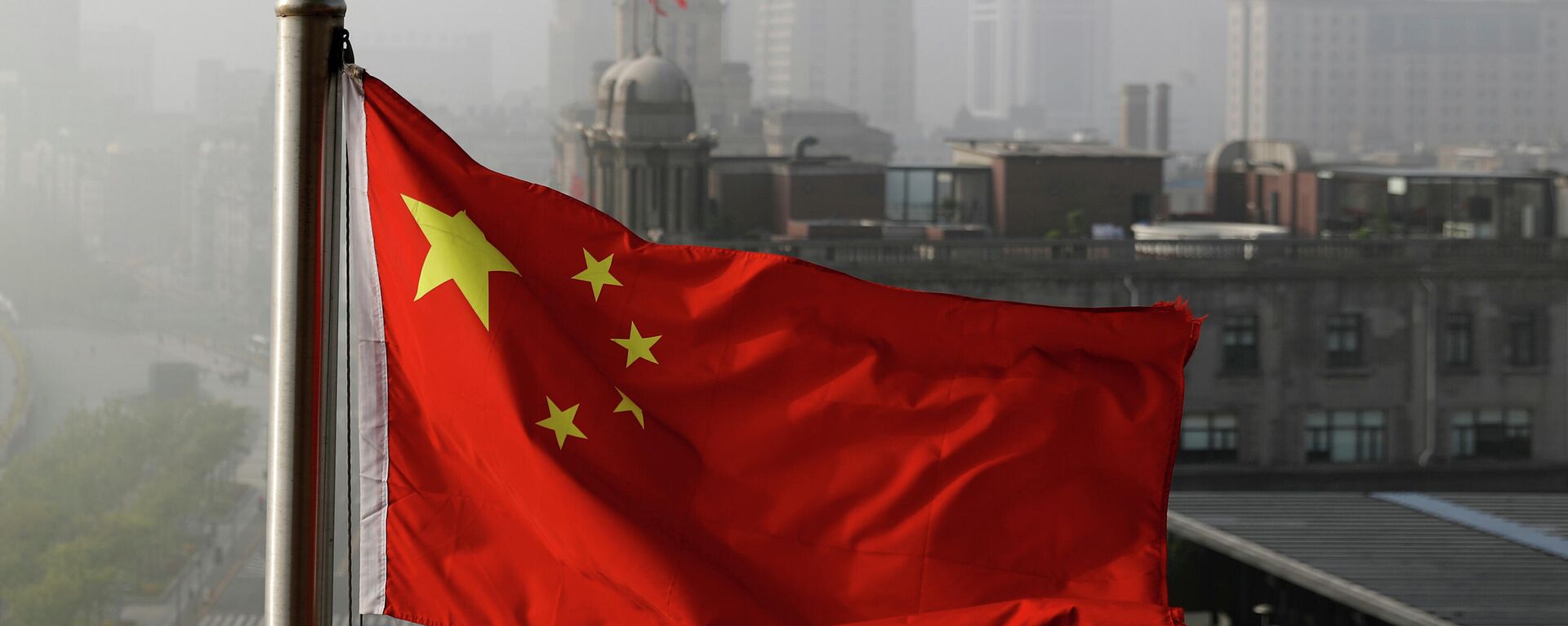Pelosi's Taiwan Trip: How China Could Wreak Vengeance on Taipei & Washington
17:48 GMT 04.08.2022 (Updated: 12:44 GMT 19.06.2023)

© AFP 2023
Subscribe
While it was US Democratic lawmaker Nancy Pelosi who angered Beijing by landing in Taipei on August 2, it's Taiwan which may pay the price, CNN suggested on August 4.
"Although many Chinese looked eager for a military confrontation, it was commonly understood that Beijing would not shoot down Pelosi’s plane," said Thomas W. Pauken II, the author of ‘US vs China: From Trade War to Reciprocal Deal’ and a consultant on Asia-Pacific affairs.
"Tracking Pelosi’s flights had become a nation-wide obsession and so when all the Chinese saw Pelosi arrive in Taipei it proved to be so anticlimactic for them. There was a huge collective sigh in China, while many Chinese felt some regret at paying such close attention to a US politician who is on her waning days of power, seeking glory and limelight before she could get swept out of power after the midterm elections in November if Republicans retake control of US Congress," the Beijing-based commentator continued.
According to Pauken, Pelosi's trip was her last-ditch attempt to stay relevant, as she will soon enter into retirement on account of her unpopularity among US voters.
He expects that the House speaker's Taiwanese adventure will be forgotten by the US media and the Washington establishment in two to three weeks. Nonetheless, the repercussions of Pelosi's trip will follow and Taipei may be the one to feel them first, according to the author.
"[Pelosi] took such a huge political gamble that the world will never be the same again," noted Pauken. "Beijing will feel emboldened to accelerate its unification measures of Taiwan and the Chinese government has just moved forward on curbing trade and investments there. The semiconductor industry will get devastated with Beijing’s bans on exporting natural sands that are key supply chain ingredients for chip-making. China blocked imports of fruits and seafood products from Taiwan as well. We should anticipate more punitive economic measures to be announced by China in the near future."
On August 4, China kicked off a series of unprecedented live fire drills in six locations around Taiwan. The People's Liberation Army (PLA) de-facto "encircled" the island, prompting concerns in Washington as to how to respond if a military exercise transitions to a blockade, according to the New York Times.
Still, it's only the beginning: after Taiwan, the US is likely to feel the heat, according to Pauken.
"China will take more aggressive economic actions against Taiwan, [the] US and others who seek to oppose China," he said. "China’s EV (electric vehicles) battery manufacturer, CATL has announced plans to stop its impending $5 billion investment of a future factory in the US and scrapped its deal with Ford Motors and Tesla in response to Pelosi’s visit to Taiwan."
Likewise, one could expect that China’s PLA will become much more confrontational and confident, Pauken added.
When then-US House Speaker Newt Gingrich visited Taiwan in 1997, China's response was largely limited to tough rhetoric, as it was in a much weaker position and not an economic superpower, explained the commentator.
Currently, the People's Republic of China holds a stronger position to cause more harm to the US economy. In addition to severing contracts with US corporations, the Chinese may potentially resort to selling off their US treasuries, US dollars, and start China-US economic decoupling, according to the commentator.
"Yes, Beijing blinked militarily here, but China can do a slow burn on the US," Pauken said. "The US as a superpower is on the decline. The country is in a ‘technical recession,’ witnessing record-high crime rates, social breakdown of families, radicalism in education with drag queens’ story hours in children’s classrooms and a foreboding sense of doom and gloom as ordinary Americans feel powerless to fight against rampant corruption, Democrat Party propaganda media and 'defund the police' civilization."
Beijing was wise not to engage in a direct military confrontation with the US over the Pelosi trip to Taiwan, according to the author, who claims that the Chinese are watching the US’ decline and waiting for a perfect time for their next move.
What's Behind US Neocons' Maneuvers?
One might wonder as to why the US foreign policy establishment greenlit Pelosi's controversial trip, as it is likely not only to trigger further Sino-American decoupling but also bolster Russo-China's rapprochement. Both scenarios have repeatedly been identified as dangerous by US scholars and political commentators.
"The elites live in bubbles and are unaffected by economic downturns and geopolitical turmoil. They will stay rich and powerful, whether the global economy is booming or crashing," said Pauken. "Biden can get the US Congress and Senate to approve huge budgets for defense spending bills. Hence, defense contractors will score big money deals and must rely on their close relations with the Biden family along with other Democrats in power. Washington politicians are profiting from villainizing China and Russia since both countries refuse to bend to the will of western powers."
This dangerous provocation in Taiwan by the US government and Nancy Pelosi also reveals the desperation of the West, believes Bruce Gagnon, director of the Global Network Against Weapons and Nuclear Power in Space.
"Washington, and its EU allies tremble in fear as China and Russia are creating alternative economic systems like BRICS and the Shanghai Cooperation Organization," Gagnon said. "This challenge to the 'supremacy' of the West is an important effort to create a 'fair world order' that would seriously counter the current IMF and World Bank 'colonial exploitation model'."
According to the think tank director, the US and EU understand quite well that they have a diminishing 'window of opportunity' to disrupt the Russia-China alliance and new multi-polar economic institutions. Therefore, Washington and Brussels have turned to a military option.
"The current tragic US-NATO proxy war in Ukraine is being closely followed by a similar strategy in Taiwan - the plan is to destabilize China," he explained. "By creating chaos on China's and Russia's doorsteps the west hopes to remain 'king of the hill'."
The US neocon cabal and their western allies are well-aware that their days are numbered, according to Gagnon.



